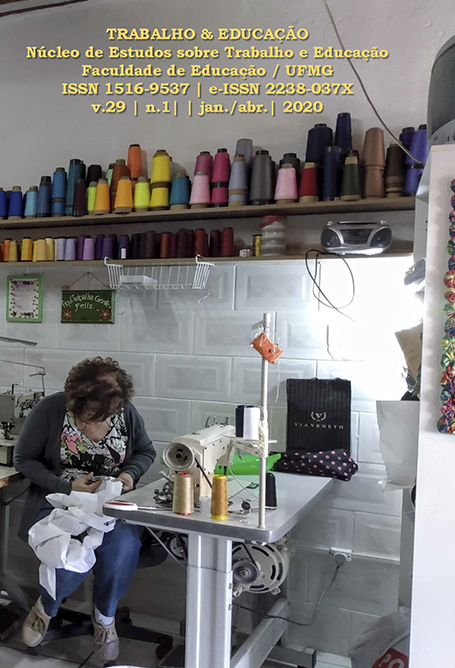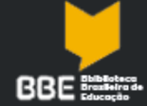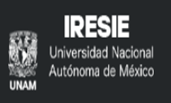O SABER DOCENTE SOBRE A TEORIA HISTÓRICO-CULTURAL
DOI:
https://doi.org/10.17648/2238-037X-trabedu-v29n1-13888Palavras-chave:
Vygotsky, Mediação, Representações sociaisResumo
O presente artigo busca compreender acerca da Teoria Histórico-Cultural, assim como sua aplicabilidade pedagógica junto aos professores da rede municipal de ensino de uma escola no norte do estado do Paraná. O objetivo consiste em identificar as representações sociais de professoras da rede municipal de ensino sobre a teoria vygotskyana, a fim de compreender como é significado pelas docentes e como isso impacta em suas atuações. Para tanto, foram realizadas entrevistas com sete professoras utilizando um questionário semiestruturado. As interpretações foram fundamentadas pela Teoria das Representações Sociais (TRS) a fim de se investigar como se formam os conhecimentos comuns no cotidiano dos sujeitos. O estudo justifica-se pela necessidade de demonstrarmos a importância do trabalho de Lev Vygotsky para que os (futuros) docentes reflitam sobre o (des)conhecimento do mesmo e como isso implica na maneira de mediarem o ensino. A problemática consiste em responder ao questionamento: quais são os conhecimentos das educadoras referentes à Teoria Histórico-Cultural? Nessa análise constatou-se que há necessidade de formação continuada para as professoras entrevistadas, visto que as participantes não têm conhecimento dos conceitos centrais do sociointeracionismo, além de se confirmar a hipótese da existência da dicotomia entre teoria e prática que se estabelece após a formação docente, o que torna o trabalho pedagógico vago.
Referências
CERVO, Amado Luiz; BARVIAN, Pedro Alcino. Metodologia cientifica: Para uso dos estudantes universitários. São Paulo: Mc Graw-Hill do Brasil, 1983.
FINO, Celso Nogueira. Vygotsky e a Zona de Desenvolvimento Proximal (ZDP): três implicações pedagógicas. Revista Portuguesa de educação, Braga, Portugal, v. 14, n. 2, p. 1-13, 2001. Disponível em: . Acesso em: 23 out. 2017.
IBGE. Instituto Brasileiro de Geografia e Estatística. Censo do IBGE 2010. Rio de Janeiro: IBGE, 2010. Disponível em: https://cidades.ibge.gov.br/brasil/pr/miraselva/ panorama. Acesso em: 26 mar. 2018
JOVCHELOVITCH, Sandra. Representações Sociais: Para uma Fenomenologia dos Saberes Sociais. Psicologia e Sociedade, Florianópolis, v. 10, n. 1, p. 54-68, 1998.
LEONTIEV, Alexis Nikolaevich. Os princípios psicológicos da brincadeira pré-escolar. In: VYGOTSKY, Lev Seminovich; LURIA, Alexander Remonovich; LEONTIEV, Alexis Nikolaevich. Linguagem, desenvolvimento e aprendizagem. São Paulo: Ícone, 2001. p. 119-142.
LURIA, Alexander Remonovich. Vigotskii. In: VYGOTSKY, Lev Seminovich; LURIA, Alexander Remonovich; LEONTIEV, Alexis Nikolaevich. Linguagem, desenvolvimento e aprendizagem. São Paulo: Ícone, 2001. p. 21-38.
MARTINS, João Carlos. Vygotsky e o papel das interações sociais em sala de aula: reconhecer e desvendar o mundo. Idéia, São Paulo, n. 28, p. 111-122, 1997. Disponível em: http://www.crmariocovas.sp.gov.br/pdf/ideias_28_p111-122_c.pdf. Acesso em: 9 out. 2017.
MIRANDA, Maria Irene. Conceitos centrais da teoria de Vygotsky e a prática pedagógica. Ensino em Re-Vista, Uberlândia, v. 13, n. 1, p. 7-28, jul.2004/jul.2005. Disponível em: www.seer.ufu.br/index.php/emrevista/article/viewe/File/7921/5027. Acesso em: 11 out. 2017.
MOSCOVICI, Serge. Representações sociais investigação em psicologia social. 11. ed. Petrópolis, RJ: Vozes, 2015.
NAZAR, Terezinha Regina Nogueira. Representações sociais de professores dos anos finais do Ensino Fundamental sobre Transtorno de Déficit de Atenção e Hiperatividade (TDAH). 2011. 86 f. Dissertação (Mestrado em Educação) – Universidade Estácio de Sá, Rio de Janeiro, 2011. Disponível em: http://www.fe.ufrj.br/anpedinha2011/trabalhos/PPGEDUCACAO_ ESTACIO _174.358.117-34_trabalho.doc. Acesso em: 10 mar. 2018.
REGO, Tereza Cristina. Vygotsky: Uma perspectiva histórico-cultural da educação. 10. ed. Petrópolis, RJ: Vozes, 1995.
TRIVIÑOS, Augusto Nibaldo Silva. Introdução à pesquisa em ciências sociais: a pesquisa qualitativa em educação. São Paulo: Atlas, 1987.
VYGOTSKY, Lev Seminovich. A formação social da mente. 4. ed. São Paulo: Martins Fontes, 1991.
VYGOTSKY, Lev Seminovich. Historia del desarrollo de las funciones psíquicas superiores. In: Obras escogidas. Madri: Visor/MEC, 1995.













